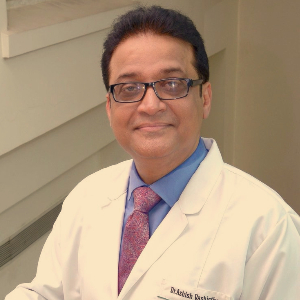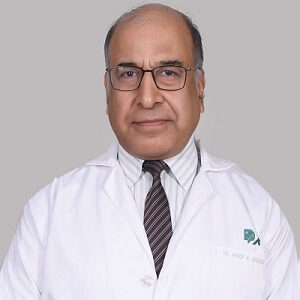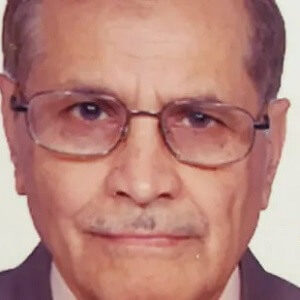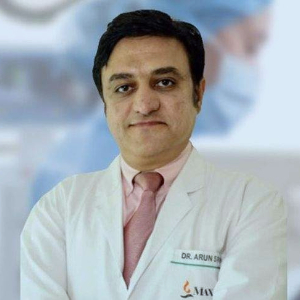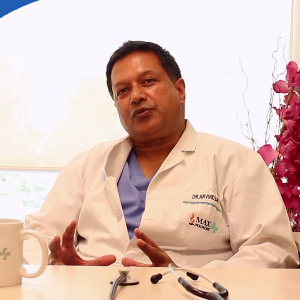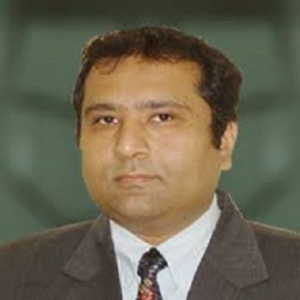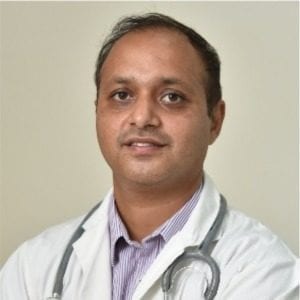Best Doctors in India for Alcoholic Hepatitis Treatment
- Bariatric & Laparoscopic Surgeon, New Delhi, India
- Over 20 years’ experience
Profile Highlights:
- Dr. Ashish Vashishtha is one of the most reputable Bariatric and Laparoscopic surgeons in India who has over 20 years of experience in his field.
- He has performed over 100 bariatric surgeries in his career so far and is proficient in Laparoscopic Gastric Bypass, Laparoscopic Sleeve Gastrectomy, Laparoscopic Mini Gastric Bypass, and Revision surgeries. Apart from his medical performance.
- Hemato Oncologist & BMT Specialist, New Delhi, India
- Over 10 years’ experience
Profile Highlights:
- Dr. Shishir Seth is a Hemato Oncologist and Bone Marrow Transplant specialist currently practicing at Indraprastha Apollo Hospital, New Delhi
- He has performed over 200 hematopoietic stem cell transplants successfully of which 40 included allogenic haploidentical transplants and antigen mismatch transplants. He has also performed 300 induction therapies for acute leukemia.
- Dr. Shishir Seth is an expert hematologist and hemato oncologist with an interest in the management and treatment of different blood diseases (benign and malignant).
- With an experience of 10+ years in Hematology and BMT, Dr. Seth has achieved several feats in his career that have gained him immense popularity and recognition.
- Dr. Shishir Seth is involved with research work as well and has numerous publications in his name in national and international journals.
- Cardiothoracic Surgeon and Vascular Surgeon, New Delhi, India
- Over 42 years’ experience
Profile Highlights:
- Dr. Anoop K Ganjoo is one of the best cardiologists & cardiothoracic surgeons in India with a total experience of 42 years.
- Dr. Ganjoo has a rich experience of over two decades in several complicated procedures, like Mitral valve repair and replacement, Peripheral and Coronary angiography & angioplasty, vascular surgery, ICD, diffuse coronary artery disease, Pacemaker, Radiofrequency ablation of arrhythmias, adult Cardiothoracic Surgery, CRT implantation, Balloon valvuloplasty, and PDA device closure.
- Eye Surgeon, Ophthalmologist, New Delhi, India
- Over 36 years’ experience
Profile Highlights:
- With over 36 years of experience, Dr. Ranjana Mithal is currently practicing at Indraprastha Hospitals in Delhi. Her expertise lies in providing services for diabetic eye ailments, laser eye surgeries, glaucoma treatment as well as phaco-surgery.
- She has also gained additional specialization in LASIK & Neuro-ophthalmology.
- Dr. Ranjana Mithal is a member of several associations as well, such as the Glaucoma Society of India, and the Cataract & Refractive Society of India.
- Surgical Gastroenterologist, Liver Transplant Surgeon, New Delhi, India
- Over 18 years experience
Profile Highlights:
- Dr. Neerav Goyal is one of the best Liver transplant surgeons in India. He is the Head of the Apollo Liver Transplant, Hepatobiliary, and Pancreatic Surgery unit in New Delhi.
- Dr. Neerav Goyal is providing the best care to patients with Hepatectomy/ liver transplant in case of liver cancer or liver cirrhosis, surgeries for pancreatic cancer, etc.
- He is a Gold Medalist practitioner who performs complex surgeries with success.
- Dr. Goyal has performed over 2100 liver transplants in his 18 years of experience. This also includes 500+ cadaver liver transplants and 220 pediatric liver transplants.
- ENT Surgeon, New Delhi, India
- Over 45 years’ experience
Profile Highlights:
- Dr. Dhingra is one of the best ENT surgeons in India with experience of over 45 years in the field.
- He is the senior consultant ENT with Indraprastha Apollo Hospitals, New Delhi. The veteran doctor is practicing in the area since 1965 and specializes in Ear, Nose, Throat, and Head & Neck Surgery.
- Dr. P L Dhingra has a special interest in ear surgery for alleviating deafness, endoscopic surgery of the nose and sinuses, and Microsurgery for voice disorders.
- Dr. Dhingra has held many prominent positions in his career; that included Medical Superintendent of the University College of Medical Sciences and GTB Hospital, Delhi.
- He penned many books, including a self-assessment manual; and articles in national and international journals.
- Neurosurgeon, New Delhi, India
- Over 20 years’ experience
Profile Highlights:
- Dr. Arun Saroha is a renowned Neurosurgeon with extensive experience in the surgical treatment of all kinds of brain and spine disorders.
- He holds an experience of over 20 years in the field and has performed over 8000 neurosurgeries till date for different types of neuro and spinal diseases.
- Dr. Saroha is an expert in minimally invasive spine surgery, neuro-onco surgery, trauma surgery and is also among the few neurosurgeons with expertise in Pediatric neurosurgery.
- Interventional Cardiologist, New Delhi, India
- Over 24 years’ experience
Profile Highlights:
- Dr. Arvind Das is an interventional cardiologist with expertise in all kinds of coronary and non-coronary interventions and electrophysiology.
- Dr. Arvind Das received his fellowship training in pacing and electrophysiology from the renowned Royal Melbourne Hospital in Australia. He has undergone training at Semelweiss Heart Centre, Budapest for Device Implantation.
- Dr. Arvind Das has years of knowledge and experience in various cardiac procedures and provides the best diagnostic and therapeutic treatment for all types of heart diseases and disorders.
- Neurosurgeon, Gurugram, India
- Over 20 years’ experience
Profile Highlights:
- Dr. Sudhir Dubey is a leading Neurosurgeon whose primary area of specialization is Endoscopic Neurosurgery and has been perfecting the procedure since 1998. He has also developed various new Endoneurosurgery techniques for surgeries on the brain, spine, and skull.
- He holds an experience of more than 2 decades in neurosurgery and finds interest in skull base surgery, Pituitary tumor surgery, Brain Aneurysm surgery, CyberKnife Radiosurgery, and brain and spine tumor surgeries.
- ENT, Head & Neck Surgeon, Gurugram, India
- Over 20 years’ experience
Profile Highlights:
- Dr. Shashidhar TB is known as an exceptionally talented, hard-working, and dedicated consultant for ENT, head and neck surgery who has years of experience in handling challenging cases.
- His interests include airway reconstruction, treating swallowing disorders, sleep apnea surgery, general ENT along with pediatric ENT. He has also been the runner-up in the International Pediatric Otolaryngology conference for Best Paper Award.
Best Hospitals in India for Alcoholic Hepatitis Treatment
ALCOHOLIC HEPATITIS
Alcoholic hepatitis is a liver infection, which is mainly caused by frequent, heavy use of alcohol. Fat can build up in the liver cells, which might lead to inflammation as well as scarring of the liver.
Alcoholic hepatitis might be mild or severe. A patient might even need a liver transplant if proper treatment is not provided, or if they don’t stop consumption of alcohol.
It is also notable that all heavy drinkers don’t develop this condition, and sometimes this condition even develops in people who drink moderately. However, if you are diagnosed with this condition, it is important for you to quit drinking alcohol. People who continue drinking alcohol might face a huge risk of serious liver damage as well as death.
Symptoms
Depending on the amount of damage to the liver, the symptoms can vary. If you are having a mild form of the disease, you might not even experience any symptoms at all. However, as the damage continues to grow, you might experience the following:
- Changes in appetite
- Dry mouth
- Weight loss
- Pain or swelling in the abdomen
- Jaundice, or yellowing of the skin or eyes
- Fever
- Nausea and vomiting
- Easy bleeding or bruising
- Changes in your mental state, including confusion
- Fatigue
The symptoms of this condition are similar to those caused by a few other health conditions. Therefore, if you develop any of these symptoms, it is best to get a proper diagnosis as well as begin treatment.
Causes & risk factors
Alcoholic hepatitis generally develops when the alcohol you drink causes damage to your liver. However, it is not clear why alcohol does this damages only to some heavy drinkers.
Few factors that are known to play a role in this condition include:
- The body’s process that breaks down alcohol produces some toxic chemicals
- These chemicals can trigger inflammation that can destroy the liver cells
- Thus, over time, scars replace healthy liver tissue, thus interfering with the function of the liver
- This irreversible scarring, which is also termed cirrhosis, is the final stage of alcoholic liver disease
If you have hepatitis C and continue to drink, even moderately, you are more likely to develop cirrhosis.
Some heavy drinkers are also malnourished because they don’t eat a proper balanced diet. Alcohol and its byproducts also prevent the body from absorbing nutrition properly. Lack of nutrition can contribute to liver cell damage.
Some other risk factors that can lead to this condition include:
- Your sex- Women are usually at a higher risk of developing alcoholic hepatitis since the way alcohol is processed in women is different.
- Binge drinking- Having over five drinks within two hours for men and four or more for women can increase the risk of alcoholic hepatitis.
- Obesity- Heavy drinkers who are overweight are also more likely to develop alcoholic hepatitis and to progress from that condition to cirrhosis.
- Race and ethnicity- Hispanic and Negroid people might be at higher risk of alcoholic hepatitis.
- Genetic factors- According to studies, there may be a genetic component in alcohol-induced liver disease. However, it is difficult to separate genetic and environmental factors.
Diagnosis
If you are showing symptoms of alcoholic hepatitis, your doctor will first inquire about your medical history and alcohol consumption. Next, he/she will perform a physical exam to see if you have an enlarged liver or spleen. They might also need a few more tests to confirm your diagnosis, such as:
- Complete blood count (CBC)
- Liver function test
- Ultrasound of the liver
- Abdominal CT scan
- Blood clotting tests
In some cases, a liver biopsy might also be needed to confirm the diagnosis of alcoholic hepatitis. A liver biopsy requires your doctor to remove a tissue sample from your liver, which is then tested in the lab. This method helps to show the severity and type of liver disease.
Treatment
Stopping alcohol consumption is the most important treatment for alcoholic hepatitis. There is no cure for this condition, but treatment can help in reducing or eliminating symptoms, or stopping its progression.
It is also important to note that scarring of the liver is permanent, but treatment can aim to restore as much function as possible.
Dietary changes
Medication
Liver transplant
The best hope of recovery is to be aware of the signs and symptoms as well as to reduce, manage, or if possible, completely stop consumption of alcohol.
Complications
Alcoholic hepatitis might lead to severe other complications such as:
- Enlarged veins (varices)- In this condition, blood that is unable to flow freely through the portal vein, can back up into other blood vessels in your esophagus or stomach.
- Hepatic encephalopathy- This condition can be caused by the buildup of toxins if your damaged liver is unable to remove all the toxins from your body. It involves confusion, drowsiness, and slurred speech.
- Ascites- Ascites is a condition in which the fluid that accumulates in the abdomen may get infected and thus, require treatment with antibiotics. Although this condition is not life-threatening, it can be a sign of advanced alcoholic hepatitis, or cirrhosis.
- Kidney failure- A damaged liver affects blood flow to the kidneys, thus resulting in kidney failure.
- Cirrhosis- The scarring of the liver might lead to liver failure.
Prevention
Alcoholic hepatitis might be prevented if you take the following steps:
- Drink alcohol in moderation, if at all- For healthy adults, moderate drinking means no more than one drink a day for women of all ages and men older than 65, and not over two drinks a day for men aged 65 and younger. However, if you prevent all alcohol, it is a certain way to prevent this condition.
- Check before mixing medications and alcohol- Ask your doctor if it’s safe to drink alcohol while you are taking medications. Consider reading the warning labels on over-the-counter medications as well. Don’t drink alcohol when you are taking medications that warn of complications when combined with alcohol.
- Protect yourself from hepatitis C- Hepatitis C is an infectious liver disease that is caused by a virus. If it is left untreated, it may lead to cirrhosis. If you are having hepatitis C and you consume alcohol, you’re generally more likely to develop cirrhosis than if you don’t drink.

